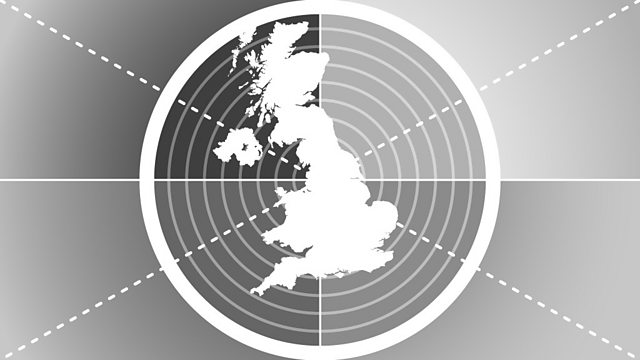Politics UK
Are economic hard times revealing the strains of recent immigration?
Immigration is the sincerest form of flattery and Britain has certainly had a lot of that in the last ten years. But economic hard times are revealing the strains. Are the political classes facing up to the dangers of overstretch? Also this week, President Sarkozy talks of banning the burkha in France, but could that happen here? If all Britons are equal before the law, why are so many Sharia courts in business? And how Britain's Tamils work with Westminster to make their case. Presented by Susan Hulme.
During the economic good times, migrants' labour was lapped up by British business. But as the numbers rise and the recession squeezes - comes the fear of social tension. Mainstream politicians have been rattled by the recent electoral success of the far-right British National Party, the BNP. And the political commentator, Fraser Nelson, argues that while the influx of foreign labour has been terrific for employers - it's not been so great for indigenous low-paid or unemployed people. He's obtained figures that show that in the boom years, while the number of people in work went up - that was fuelled by incoming workers. A rump of around five million British-born stayed out of work and on benefits through the good times, just as they had in the bad ones. Similarly, a House of Lords report has said that the low-paid and unemployed suffer from competition from immigrants.
France's President Sarkozy caused a stir last month when, in a major policy speech he spoke out strongly against the wearing of the veil by Muslim women in France. Mr Sarkozy said the burqa or niqab, a full veil, was not problematic as a religious symbol - but it was a problem of freedom and of women's dignity. Women in Britain are divided on the issue.
One other area which is beginning to cause tensions within the Muslim community is the growth of Islamic sharia courts. Sharia is a set of principles which govern the way many Muslims believe they should live their life. But a report by the think tank Civitas argues that sharia courts operating in Britain may be handing down rulings which are out of step with British law - and discriminate against women. It says there may be more than 85 sharia courts, operating largely out of mosques - often dealing with family disputes and property issues. We brought together the report's author Denis MacEoin, and Haras Rafiq from the Sufi Muslim council.
When the Sri Lankan government began its purge of the Tamil Tiger rebel movement earlier this year, Britain's Tamil community watched in horror as TV pictures showed the panic and desperation of ordinary Tamils, forced from their homes by the fighting. Whether or not they support the Tamil Tigers, or LTTE, British Tamils came out in force, night after night, to demonstrate in front of the Houses of Parliament.
It was an unusual step into the public glare for the Tamil community. We met the co-founder of the British Tamil Foundation, Sen Kandiah, and a young doctor from the community, Sivakami RajamaNOharan INSIDE the Houses of Parliament this time, with their local MP, Siobhan McDonagh who's supported their protests.
Last on
Broadcasts
- Sat 11 Jul 2009 18:32GMT大象传媒 World Service Online
- Sun 12 Jul 2009 09:32GMT大象传媒 World Service Online
大象传媒 World Service Archive
This programme was restored as part of the World Service archive project

